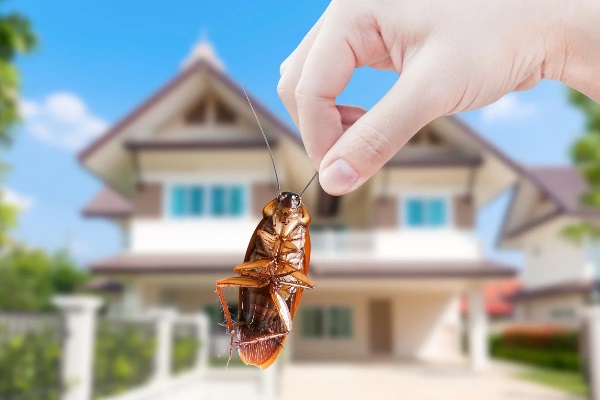Keeping your properties free from pests is essential for maintaining a clean and healthy living environment. From ants in the kitchen to spiders in the basement, dealing with pests can be a constant battle. Fortunately, there are many do-it-yourself (DIY) pest control methods that can help you keep your home bug-free without the need for professional intervention.
In this guide, we’ll explore some simple and effective tips and tricks for DIY pest control, discuss when professional pest control Trophy Club TX becomes necessary, and provide strategies for avoiding bug infestations in the future.
DIY Pest Control Tips for a Bug-Free Home
1. Maintain Cleanliness: One of the most effective ways to prevent pests from infesting your home is to keep it clean and tidy. Regularly sweep and vacuum floors, wipe down countertops, and wash dishes promptly to eliminate food sources that attract pests.
2. Seal Entry Points: Inspect your home for any cracks or openings where pests could enter, such as gaps around doors and windows, holes in screens, or cracks in the foundation. Seal these entry points with caulk or weather stripping to prevent pests from getting inside.
3. Remove Standing Water: Pests like mosquitoes and cockroaches are attracted to standing water, so be sure to eliminate any sources of moisture around your home. Fix leaky faucets, empty pet water bowls at night, and clean out gutters regularly to prevent water from accumulating.
4. Trim Vegetation: Keep shrubs, trees, and other vegetation trimmed back from the exterior of your home to reduce hiding places for pests. Overgrown foliage can provide a pathway for pests to access your home and create harborage areas where they can nest.
5. Use Natural Repellents: Many household items can serve as natural pest repellents. For example, sprinkle cinnamon or cayenne pepper around entry points to deter ants, or plant marigolds in your garden to repel aphids and other plant-eating insects.
6. Set Traps: For small infestations, setting traps can be an effective way to capture and remove pests from your home. There are many types of traps available, including glue traps, snap traps, and pheromone traps, so choose the one that’s best suited to your particular pest problem.
7. Regular Inspections: Make it a habit to regularly inspect your home for signs of pest activity, such as droppings, shed skins, or gnaw marks. Catching a pest infestation early can help prevent it from becoming a larger, more difficult problem to tackle.
When Does Professional Pest Control Become Necessary?
While DIY pest control methods can be effective for managing small pest problems, there are times when professional intervention may be necessary. Here are some signs that it’s time to call in the experts:
1. Persistent Infestations: If you’ve tried DIY pest control methods and the problem persists or worsens, it may be time to seek professional help. Pest control Flower Mound TX professionals have access to specialized equipment and treatments that can effectively eliminate stubborn infestations.
2. Health Risks: Certain pests, such as rodents and cockroaches, can pose significant health risks to you and your family. If you’re dealing with a pest problem that carries the risk of disease transmission or exacerbates allergies or asthma, it’s best to leave the job to professionals who can safely and effectively eradicate the pests.
3. Structural Damage: Some pests, like termites and carpenter ants, can cause serious damage to the structure of your home if left unchecked. If you suspect that your home is being damaged by pests, it’s important to have a professional inspection to assess the extent of the problem and implement appropriate treatment measures.
4. Regulatory Compliance: In some cases, pest infestations may need to be addressed by licensed professionals to comply with local regulations or requirements, especially in commercial or multi-unit residential properties. Be sure to check your local laws and regulations regarding pest control to ensure compliance.
Avoiding Bug Infestation in the Future
Once you’ve successfully dealt with a pest infestation, it’s important to take steps to prevent it from happening again in the future. Here are some strategies for avoiding bug infestations:
1. Maintain Regular Cleaning and Maintenance: Continue to keep your home clean and tidy to eliminate food sources and hiding places for pests.
2. Practice Proper Food Storage: Store food in airtight containers and clean up spills and crumbs promptly to avoid attracting pests like ants and cockroaches.
3. Monitor Your Home: Stay vigilant for signs of pest activity and address any issues promptly to prevent infestations from taking hold.
4. Implement Preventive Measures: Take proactive steps to prevent pests from entering your home, such as sealing entry points and using natural repellents.
5. Consider Regular Pest Control Services: Depending on your location and the severity of your pest problem, you may benefit from periodic pest control treatments to keep pests at bay.
By following these tips and tricks for DIY pest control, knowing when to seek professional help, and implementing preventive measures, you can keep your home bug-free and enjoy a clean, healthy living environment for you and your family.
